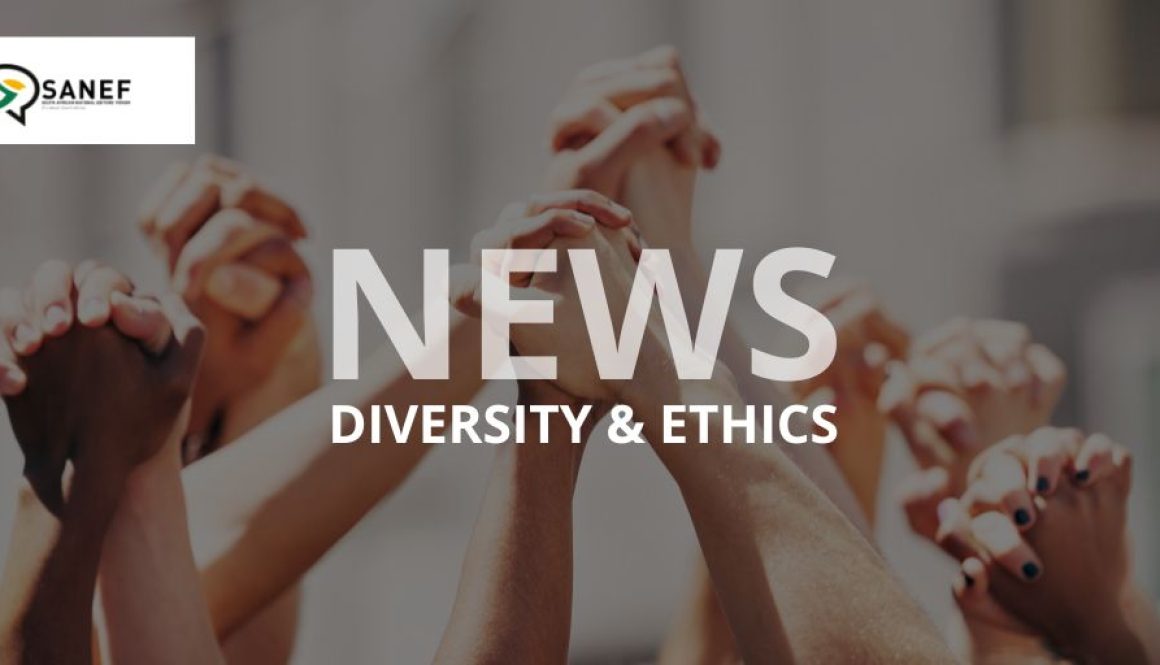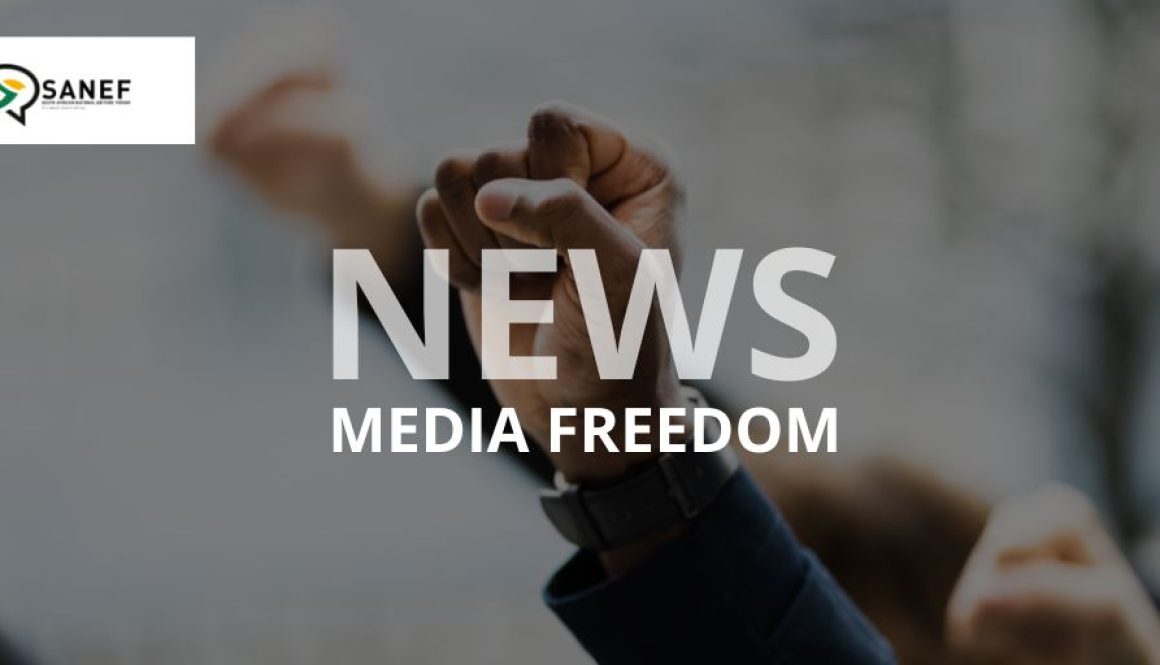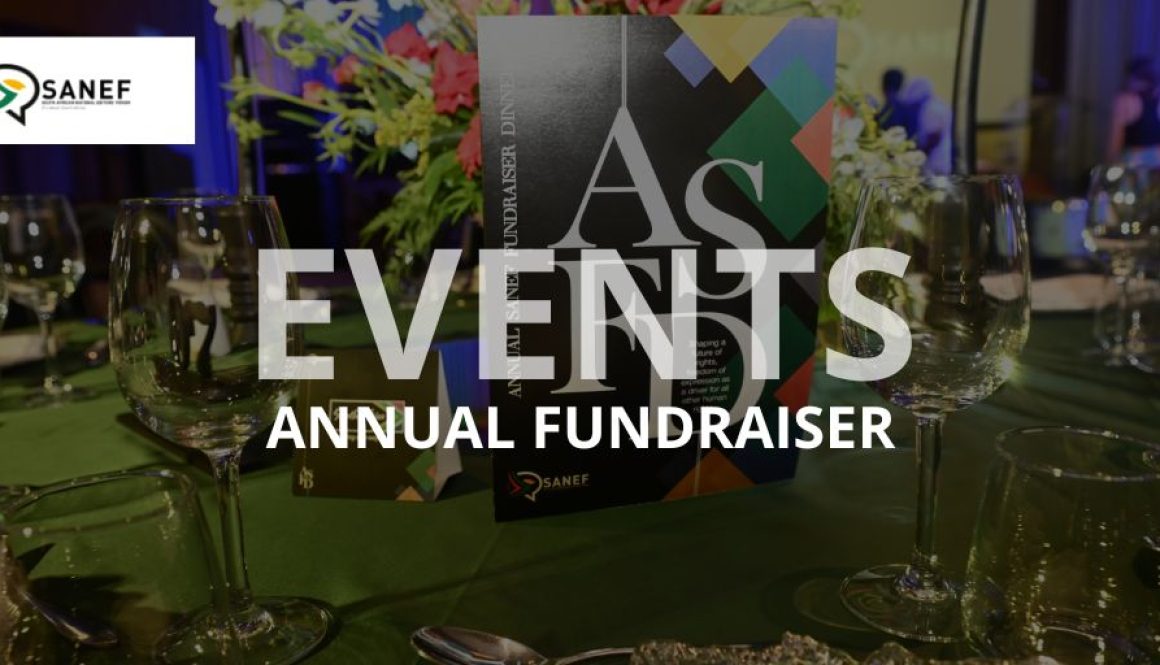TREASURER-GENERAL OF THE ANC DR. ZWELI MKHIZE
ADDRESS AT SANEF ANNUAL FUNDRAISING GALA DINNER AT EMOYENI ESTATE IN JOHANNESBURG
WEDNESDAY: 18TH OCTOBER 2017
GOOD EVENING
SANEF CHAIRPERSON: MS. MAHLATSE GALLENS,
DEPUTY CHAIR MS. KATY KATAPODIS & ALL LEADERSHIP & FOUNDER EDITORS OF SANEF
CHAIRPERSON OF THE ALL AFRICA EDITORS FORUM: MR. JOVIAL RANTAO
EDITORS AND MEDIA VETERANS PRESENT
LADIES AND GENTLEMEN
THANK YOU SANEF FOR EXTENDING THIS INVITATION TO ME.
“The media’s the most powerful entity on earth. They have the power to make the innocent guilty and to make the guilty innocent, and that’s power. Because they control the minds of the masses. Malcolm X
A free and active press is the life-blood of any self-respecting democracy.
As we gather tonight in commemoration of “Black Wednesday” and we honour our colleagues in the media fraternity who have sacrificed their lives in the pursuit of a free and active press we must be reminded of the importance of this.
Let us remember those who can’t be with us tonight and reflect on their role. This week we lost two KwaZulu-Natal journalism leaders – Prof. Govin Reddy – who played a significant role in transforming the SABC and award-winning and internationally acclaimed photo-journalist Peter McKenzie. Only two weeks ago, we joined SANEF in mourning the passing away of Sipho Khumalo, a veteran political journalist in KwaZulu-Natal who also worked for the provincial government.
All of them would have agreed with us today that we as South African citizens have a moral and ethical obligation to continue to protect our country’s democracy. The media serves as a catalyst in the exercising of this duty.
40 years ago on 19 October 1977 the apartheid government, under the then Internal Security Act, declared 19 organisations unlawful and apprehended around 70 leading Africans.
Several publications were banned. Among the main newspapers targeted were The World and its sister publication the Weekend World. The World is credited with having earlier informed the rest of the planet about the true state of affairs in South Africa by publishing the iconic photo of a dying Hector Peterson after the Soweto uprisings that marked the turning of the tide against apartheid repression.
A number of journalists were placed under restriction and detained, editor of the World Percy Qoboza, key writers Joe Thloloe, Mathatha Tsedu and Don Mattera among many others, were tortured in prison and on their release they were slapped with five-year banning orders. These actions provoked worldwide shock and protest and drew attention to the crime against humanity that was being perpetrated in this country against the majority of its people.
The then Minister of Justice, Jimmy Kruger, issued a statement justifying these oppressive measures, and declared the organisations concerned a threat to law and order.
The organisations affected included the Black People’s Convention (BPC), the South African Student’s Organisation (SASO), the Black Parents’ Association (BPA), the Black Women’s Federation and the Union of Black Journalists.
Today we remember that this was a most brutal act of censorship which must never be repeated. Black Wednesday changed the course of our collective history forever.
We should never end up repeating the mistakes of the past, therefore press freedom should always be protected. The Constitution of the Republic guarantees freedom of expression, including freedom of the press. This was a conscious effort on the part of the founding fathers of our Supreme Law to ensure that as a people we would never again suffer under a cloud of ignorance because the media could not tell us the truth.
That being said, the same press also has a responsibility to execute their duties with great responsibility – maintaining balance and fair reporting in all narratives is key.
Strengthened relationships between government and media is important if the country is to maintain a robust and participatory democracy. That is why, through the Government Communication and Information System, the political leadership of our country continually seeks to improve the working relationship between itself and the media as purveyors of important information about the functioning of our political system.
The media has an important role to play in helping the country understand its problems as the media highlights challenges and points to solutions. In this context, we must applaud the significant strides we have witnessed towards creating an environment that will allow the South African Broadcasting Corporation to execute its mandate as a public broadcaster free from the clutches of negative publicity and controversies around its administration. We believe that stability in the political leadership of the country will also go a long way to assist the Corporation to perform optimally in the best interests of the country. We welcome the appointment of the new Board the last 24 hours – here support for nominations is also noted. I acknowledge the valiant efforts so many organisations that persisted in their efforts to restore the credibility of the SABC into a public broadcaster – both inside and outside the organisation – SANEF and its members, the SABC 8 journalists (we remember the late Suna Venter) who died under tragic circumstances in her efforts.
Overall in our media, Journalists must be commended for strong investigative reports that are making huge inroads into exposing corruption. The media has a responsibility to the public to ensure that that they are kept aware and up to date about the political decisions that are affecting their communities and country at large.
Journalists have the potential to be great activists for democracy and they should not be tainted by alignment with a political faction or a desire in commercial interest and material gain.
Most importantly the media should not allow themselves to be used as proxies in the battles between political factions which sow divisions and raise suspicion rather than build social trust. In these cases, the media contribute to public cynicism and democratic decay.
Although since 1994 we have not seen the same brutal violations of press freedom that occurred on that fateful “Black Wednesday”, we cannot be dismissive of the challenges the media industry is plagued with today.
The reality is that the media are faced with sometimes difficult and dangerous situations, monopolistic ownership, and the threat of brute force. Investigative journalism is difficult to maintain in competitive media markets that put a premium on the shallow and sensational.
The fourth industrial revolution has created a culture of “sharing” and “liking”, as well as the phenomenon of “fake news” lies, misinformation and propaganda.
However, the solid foundation of good journalism remains thorough research, checking and verifying information before rushing to publish half-baked information.
In South Africa we have seen that the media have through the years been able to effectively assert their role in deepening our democracy.
Recent investigative reporting has made political leaders become accustomed to an inquisitive press. It cannot be denied that this has helped build a culture of openness and disclosure that has made our government more accountable. I need only point to the recent flurry of news items about State Capture and the infamous e-mails to remind us of the important role of the media to keep our citizenry informed.
A democracy requires the active participation of its citizens. The role of the media in active citizenship cannot be over emphasised. Journalists keep citizens engaged in the business of governance by informing, educating and mobilising the public.
The media can also help build peace and social consensus, without which democracy is threatened.
The reality remains that the media can play a positive role in democracy only if there is an enabling environment that allows them to do so. They need the requisite skills for the kind of in-depth reporting that a fledgling democracy such as ours requires.
There should also be mechanisms to ensure they are held accountable to the public and that ethical and professional standards are upheld. I must commend the efforts of SANEF and other institutions in assisting in strengthening our self–regulatory mechanism – The SA Press Council and the Role of the Press Ombudsman.
Media independence is guaranteed if media organizations are financially viable, free from intervention of media owners and the state, and operate in a competitive environment.
The media should also be accessible to as wide a segment of society as possible. Radio and particularly community radio stations have proven successful in this regard as it is less expensive and more accessible.
Effective portals of media are key as they can provide the information poor people need to take part in public life. In providing a voice to the marginalized because of poverty, gender, or ethnic or religious affiliation their afflictions become part of mainstream public debate and contribute to the injustices against them being redressed.
Community radio stations and newspapers are some of the effective instruments through media that have promoted active citizenship by airing local issues and reflecting ethnic and linguistic diversity. The Internet, too, can play a role, because of its interactivity and accessibility.
Governments effort to help the media should be directed toward, the protection of press Rights, enhancing media accountability, building media capacity and democratising media access.
In this context, we applaud the support rendered by the Media Development and Diversity Agency. Needless to say, more could still be done to assist our emerging media in its various forms.
We celebrate the strides that have been made in entrenching democracy through, amongst others, a vibrant and free press. The triumph of SANEF in the case of the jamming of communications at Parliament in 2015 during the State of the Nation Address and the ruling of the SCA that censorship has no place in our democracy bears testimony to the strength of our democratic structures and the need to protect these at all costs.
The active and robust role played in our country by organisations such as SANEF, the Institute for the Advancement of Journalism, Media Monitoring Africa, the Freedom of Expression Institute, the Media Institute of Southern Africa, Save our SABC, and Right2Know, to name a few, must be commended.
We have come a long way and South Africa is a much better place today than it was on the 19th October 1977. It is imperative that the notion of the media as a watchdog, as a guardian of the public interest, and as a conduit between p
olitical leaders and the people they lead must remain deeply ingrained within South African society.
Building on the hard-won struggles of the media and society in general for a free, transparent and accountable South Africa, we must remain committed to words of Nelson Mandela, when he addressed the international press institute in Kyoto, Japan, on 22 April 1991, he declared:
“Freedom of the media and the press is among the oldest and most valued freedoms for which people the world over have fought. The ANC has extended its solidarity and shall continue to support journalists, editors, writers and other media people who face persecution because they seek to exercise this right.” ENDS




